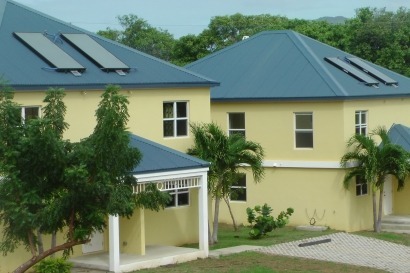
The recent Lib Dem and Labour Party conferences show that the UK is further than ever from implementing an affordable and sustainable energy policy according to Silvio Spiess, founder of the renewable heating company Innasol.
Ed Miliband recently announced plans to persuade energy companies to freeze utility bills for two years, but Mr Spiess has described the move as ‘quixotic’ saying that Labour’s attempts to ease the burden of rising energy bills was actually a missed opportunity to deliver longer term lower household bills while also cutting the UK’s carbon footprint.
“Miliband’s plan to freeze utility bills is not just misguided, it is quixotic” said Mr Spiess. “This will merely encourage energy firms to push up prices before any legislation can be passed. That does not even benefit householders in the short term, and does nothing to address the fundamental problems with energy costs in the UK. Any discussion on the cost of living must focus on steps that householders can take to cut their dependence on the big energy providers, through insulation, energy efficiency and home heat generation. Renewable heating technologies such as biomass boilers and heat pumps deliver the vast majority of a household’s energy needs at a fraction of the cost charged by the big energy firms.”
Mr Miliband’s speech perpetuates the idea that UK householders and businesses have no choice but to remain in bondage to the big energy companies, Mr Spiess added.
“In reality, many consumers could easily break free” he said, “but there needs to be greater commitment from government to enable and encourage them to do so.”
Meanwhile, at the Lib Dem conference, Energy Secretary Ed Davey said it was ‘reckless’ to rely on renewable energy for heating, comments that showed a fundamental misunderstanding of how renewables are used to produce energy and heat, said Mr Spiess.
“I could begin to understand his comments if he had been talking about big, centralised renewable infrastructure such as wind farms and tidal energy projects,” said Mr Spiess. “But even then I’d be surprised that the man responsible for UK energy policy thought that renewables began and ended with big capital projects. He seems to be lumping together wind farms with proven, successful technologies for on-premises heat generation; technologies that are delivering lower costs and lower carbon right across Europe, but sadly not in the UK.”
Mr Spiess argued that it is actually reckless to heat buildings with anything but renewable technologies, which can deliver several times the efficiency and a fraction of the cost compared to fossil fuels or nuclear.
“We welcome all debate on the merits or demerits of various energy sources, but any debate must be conducted on the basis of a real understanding of the technologies involved” Mr Speiss continued. “Mr Davey’s sweeping reference to renewables in his speech shows how far the UK still has to travel before we can begin an informed debate about the various technologies and strategies for reducing our energy bills and addiction to fossil fuels.”
The large majority of energy used by householders is spent on heating and hot water rather than lighting, according to Mr Speiss. This makes on-premises renewable technology the most efficient method of providing the lion’s share of householders total energy needs as well as reducing the UK’s reliance on foreign energy supplies.
“Mr Davies comments are disappointing, but not surprising given the way that the debate has become polarised. We need a more informed and mature debate when it comes to energy policy, not one that is reduced and simplified to ‘for or against wind farms’. Only then will UK start making real progress on carbon and energy bills,” Mr Speiss concluded.
Further information:

